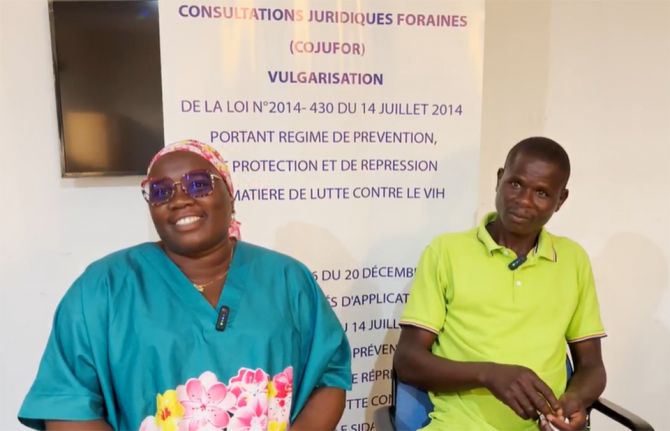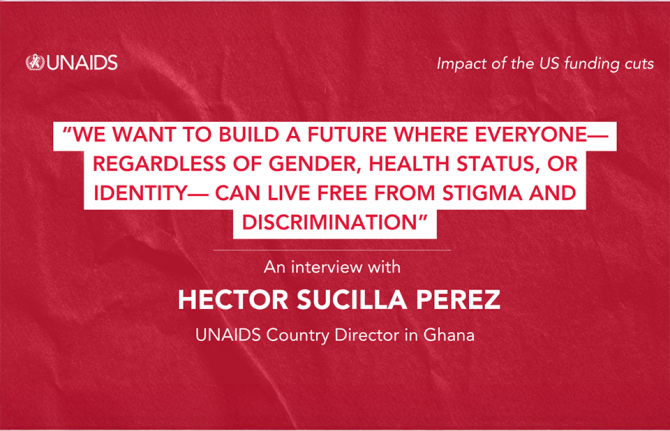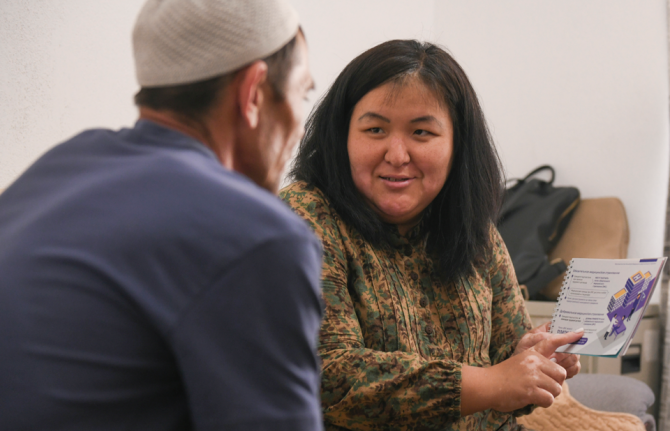
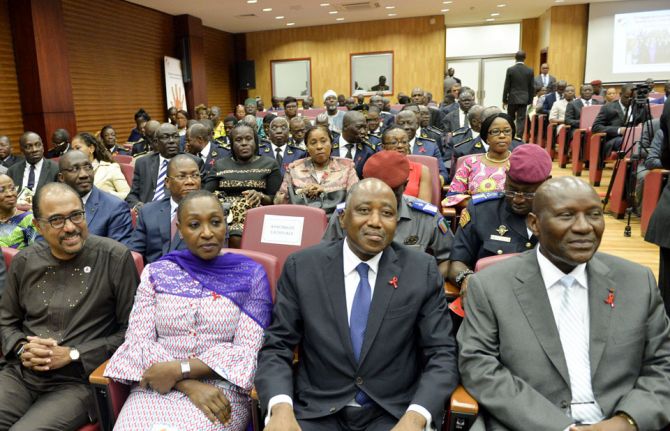
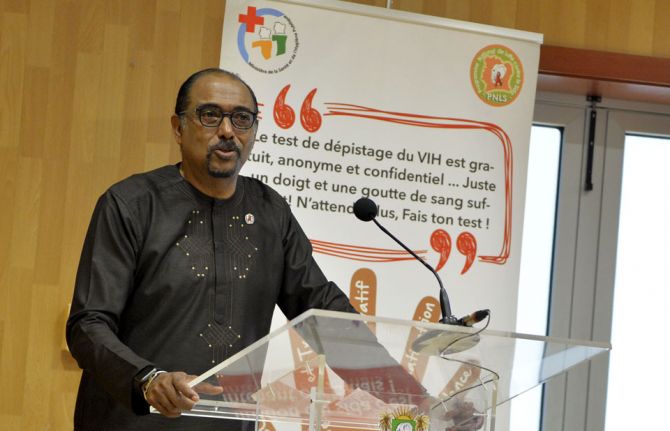
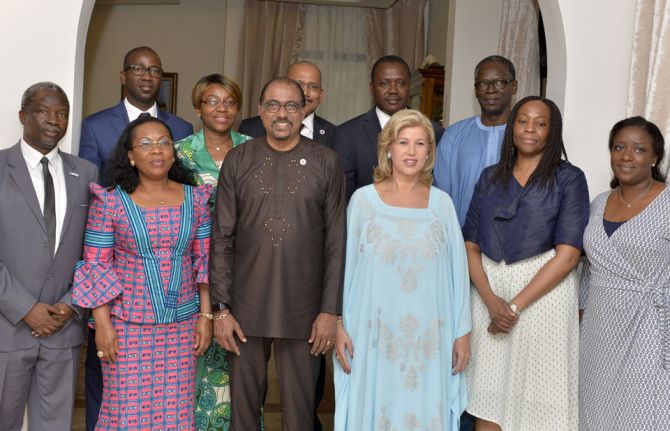
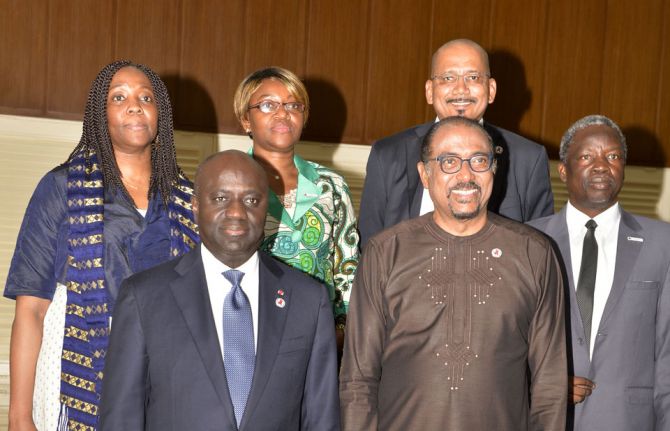
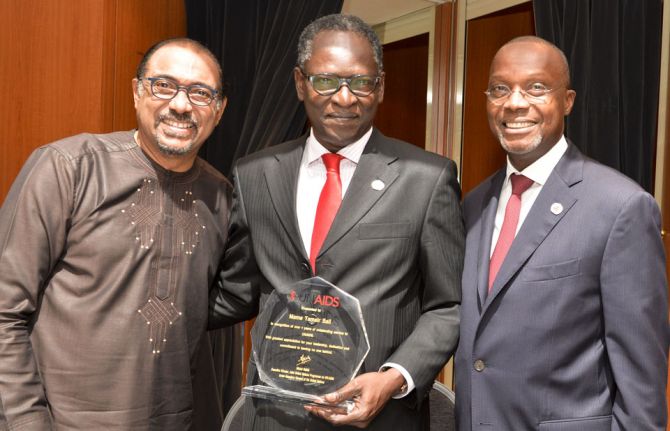
Update
Côte d’Ivoire to offer antiretroviral treatment for all people living with HIV
16 February 2017
16 February 2017 16 February 2017Côte d’Ivoire’s National AIDS Council has held its seventh session in the capital, Abidjan. The high-level meeting, co-chaired by the Vice-President of Côte d’Ivoire, Daniel Kablan Duncan, and the Prime Minister, Amadou Gon Coulibaly, was attended by government ministers and representatives of the United Nations, civil society and the private sector, as well as religious and community leaders.
The Executive Director of UNAIDS, Michel Sidibé, was invited to speak at the meeting and reminded participants that the response to HIV urgently needs stepping up in western and central Africa, since the region has not made the progress seen in other parts of the world.
He emphasized the need to revolutionize HIV testing and called for a multisectoral approach and continued work with religious leaders and mayors to break down stigma and discrimination around HIV in the region. He also asked for Côte d’Ivoire to embrace and champion a catch-up plan for western and central Africa to bolster efforts to increase access to HIV prevention, testing and treatment services.
During the meeting, the Minister of Health, Raymonde Goudou Coffie, presented Côte d’Ivoire’s National Strategic Plan 2016–2020 and gave an overview of the state of the epidemic in the country. She talked about the progress made towards the 90–90–90 targets, saying that the estimates showed that currently 70% of people living with HIV in Côte d’Ivoire knew their HIV status, 44% of people who knew their status were accessing antiretroviral treatment and 36% of people accessing treatment had suppressed viral loads. She announced that Côte d’Ivoire is now offering immediate access to treatment to everyone testing positive for HIV, which is expected to boost progress towards achieving the 90–90–90 targets.
She also announced that 80% of pregnant women living with HIV were now accessing treatment in Côte d'Ivoire and gave a special mention to the contribution of the work of the First Lady, Dominique Ouattara, to increasing access to treatment for expectant mothers living with HIV. The First Lady is a UNAIDS Special Ambassador for the Elimination of Mother-to-Child Transmission and the Promotion of Paediatric Treatment for HIV.
While in Côte d’Ivoire, Mr Sidibé met with the President of Côte d’Ivoire, the First Lady, the Foreign Minister, the Minister of Health, Imam Cissé Djiguiba and the United Nations Country Team.
Region/country
Related

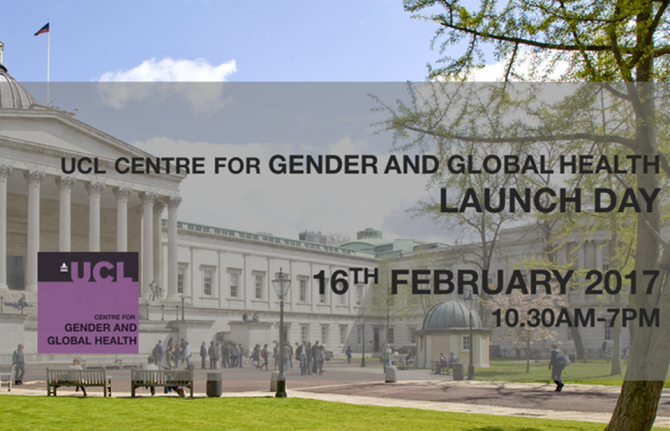
Update
HIV and gender inextricably linked
17 February 2017
17 February 2017 17 February 2017The need to increase linkages between gender inequalities and HIV has been stressed as critical to advancing progress in health and across the Sustainable Development Goals (SDGs) at the launch of a new Centre for Gender and Global Health at University College London in the United Kingdom on 16 February.
Studies show that women living with HIV are particularly vulnerable to sexual, physical and psychological violence, and that gender inequalities, including lack of education and economic empowerment, also make women more vulnerable to HIV infection. Building on this growing body of evidence, experts at the launch emphasized that addressing gender inequalities must be mainstreamed across strategies, programmes and institutions in order to achieve the SDGs and to end the AIDS epidemic as a public health threat by 2030.
The new Centre for Gender and Global Health will work with policy-makers and policy-influencers to address the complex relationships between gender norms and health.
During the launch, speakers shared evidence on the inextricable links between gender and health. UNAIDS Deputy Executive Director Jan Beagle reflected upon institutional responses, calling on organizations to act on the evidence for the development of strategies, programmes and policies, both for an organizational focus and for the internal workings of institutions, for example with regard to staffing.
She recalled that at UNAIDS, the UNAIDS 2016–2020 Strategy and the Secretariat Gender Action Plan have prioritized gender equality, parity and the empowerment of women as fundamental to its progress on HIV and the impact across broader health, development and rights outcomes.
Noting the numerical targets and strategic focus areas of the Secretariat Gender Action Plan, Ms Beagle gave details of significant progress that has been achieved since its inception in 2013. Since the launch of the plan, the number of female Country Directors has risen from 15 (27%) to 26 (41%), and the Secretariat has nearly reached its target of 50% of women in middle management (48%). She emphasized that the progress within UNAIDS is part of a broader change agenda, through which the organizational culture is being transformed to strengthen a work environment that upholds diversity and opportunities for all.
Quotes
"As global health institutions, we need to walk the talk. Through the UNAIDS Secretariat Gender Action Plan, we strive to build an organizational culture that empowers women and through which we will achieve parity among staff.”
Region/country

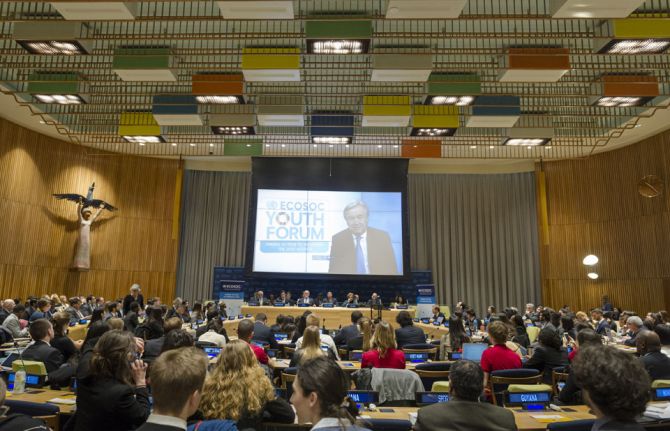
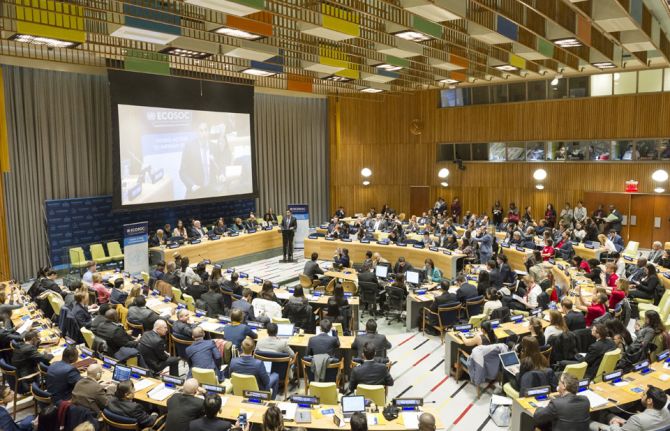
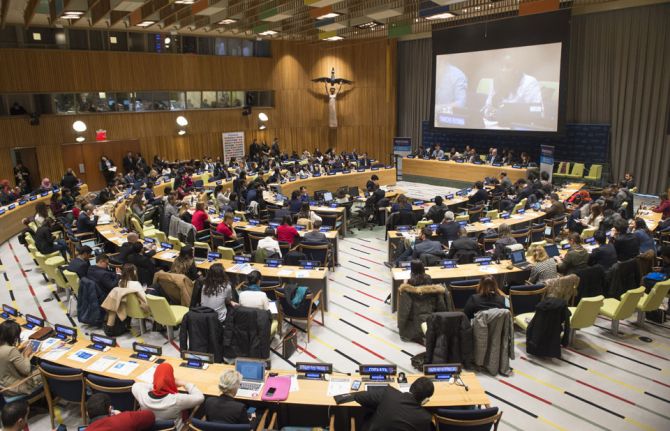
Update
ACT!2015 at ECOSOC Youth Forum
10 February 2017
10 February 2017 10 February 2017Youth advocates from Bulgaria, Jamaica, Kenya, Mexico, the Philippines, Uganda and Zimbabwe represented ACT!2015—a youth-led social action initiative supported by UNAIDS, the International Planned Parenthood Federation and the PACT—at the United Nations Economic and Social Council (ECOSOC) Youth Forum’s 2017 meeting.
Held on 30 and 31 January in New York, United States of America, the Youth Forum focused on the role of youth in poverty eradication and promoting prosperity in a changing world. The annual forum provides a platform for young people to engage in meaningful conversations with United Nations Member States and to propose solutions to the world’s most pressing challenges.
ACT!2015’s youth-led, data-driven accountability was showcased in several breakout sessions that fostered in-depth discussions on the progress achieved so far on specific Sustainable Development Goals (SDGs), including SDG 3 (healthy lives and promoting well-being) and SDG 5 (gender equality).
The forum served as a platform for three youth advocates from ACT!2015 to strengthen their collaboration with representatives of Kenya and Zimbabwe, which will undergo voluntary reviews of their progress on the Sustainable Development Goals at the upcoming High-Level Political Forum on Sustainable Development, to be held in July.
In the months leading up to the High-Level Political Forum on Sustainable Development, ACT!2015 national youth alliances will gather their own evidence around policy issues identified as key barriers to accessing HIV and sexual and reproductive health services. This evidence will be translated into national advocacy road maps aimed at starting a national process for the review and reform of restrictive laws and policies.
Quotes
“We all have a role to play and a responsibility to uphold our commitments with the Sustainable Development Goals and the United Nations Political Declaration on Ending AIDS. The United Nations Economic and Social Council Youth Forum has been a testament to young people’s commitment and unbreakable aspiration to achieve the targets and goals.”
“I participated in discussions surrounding women and girls and the broader topic of gender equality and how transgender women, men and gender nonconforming persons fit into the conversation. This experience has taught me the importance of networking and building strong relationships as well as sharing best practices, which is key in successfully implementing the Sustainable Development Goals.”
“ACT!2015 is proudly youth-led and our guiding principle is that young people have the right to participate in decision-making and to access health education and services that meet their needs. This forum has been a great opportunity for us to show that we are not going to stop pushing for youth engagement and for young people’s voices to be heard and listened to by governments.”
Related information
Related
 “Who will protect our young people?”
“Who will protect our young people?”

02 June 2025

Update
Ghana—engaged and ready to step up action on HIV
14 February 2017
14 February 2017 14 February 2017The Executive Director of UNAIDS, Michel Sidibé, has been welcomed in Ghana by the country’s senior leadership, which has declared that it is ready to step up engagement on HIV. Mr Sidibé met with the Minister of Health and talked about Ghana leading a revitalized AIDS response in western Africa, where progress urgently needs to be scaled up.
Mr Sidibé talked about the need for a people-centred approach and the importance of taking AIDS out of isolation to create more synergies between HIV and cervical cancer, maternal and child health and sexual and reproductive health programmes. He also talked about the vulnerabilities of adolescent girls, with large numbers still becoming infected with HIV, and poor adherence to treatment, which is compounded by a lack of age-appropriate HIV services to respond to their specific needs.
Ghana will assume the chair of the UNAIDS Programme Coordinating Board in 2017. Mr Sidibé congratulated Ghana on taking up this role and invited the President of Ghana, Nana Akufo-Addo, to be the first head of state to address the board in 2017. Mr Sidibé also encouraged the President to provide leadership to the regional response to HIV.
In his meeting with the Minister of Foreign Affairs, Shirley A. Botchway, Mr Sidibé stressed the need to discuss the response to HIV as part of the Economic Community of West African States’ agenda, in order to ensure political commitment so that adequate resources are mobilized to end the AIDS epidemic.
Mr Sidibé also had an opportunity to meet with the First Lady of Ghana, Rebecca Akufo-Addo, and appointed her the Ambassador for HIV Advocacy in Ghana to Achieve the 90–90–90 Targets by 2020. The First Lady will also use her voice to reduce gender-based violence and increase synergies with cervical cancer and HIV programmes. The First Lady thanked the Executive Director for her appointment and committed to mobilizing all efforts and to supporting the country and the Organisation of African First Ladies against HIV/AIDS to end AIDS by 2030.
Region/country
Related
 Impact of US funding cuts on HIV programmes in Ghana
Impact of US funding cuts on HIV programmes in Ghana

08 April 2025

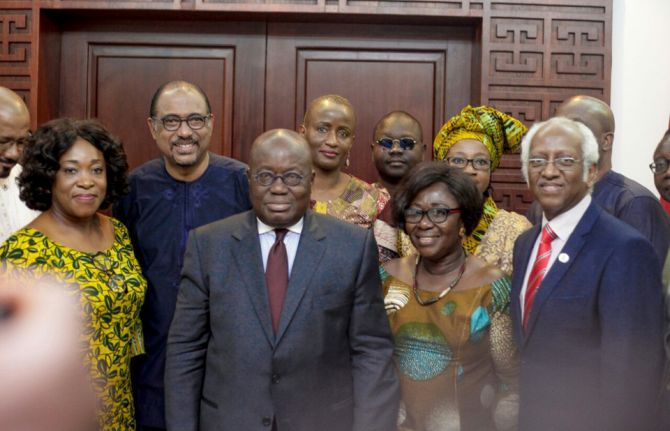
Update
President of Ghana commits to advance efforts to achieve 90–90–90
14 February 2017
14 February 2017 14 February 2017During a visit to Accra, Ghana, the Executive Director of UNAIDS, Michel Sidibé, met with the President, Nana Akufo-Addo, to encourage his leadership in the regional response to HIV.
Western and central Africa is lagging behind the rest of the continent in advancing progress in the response to HIV and urgently needs to step up efforts to reach the millions of people in need of access to HIV prevention and treatment services.
Mr Sidibé urged the President to make his country a hub of excellence for essential medicines, to which the President underlined his intentions to develop Ghana’s pharmaceutical industry, calling it a “key commitment” and part of his government's “inclusive growth agenda”.
The President expressed his appreciation for the role that UNAIDS has played in leading the AIDS response and said he would champion a revitalised campaign to end mother-to-child transmission of HIV and advance efforts to achieve the 90-90-90 targets—whereby 90% of people living with HIV know their HIV status, 90% of people who know their HIV-positive status are accessing treatment and 90% of people on treatment have suppressed viral loads—particularly among adolescents.
Region/country
Related
 Impact of US funding cuts on HIV programmes in Ghana
Impact of US funding cuts on HIV programmes in Ghana

08 April 2025

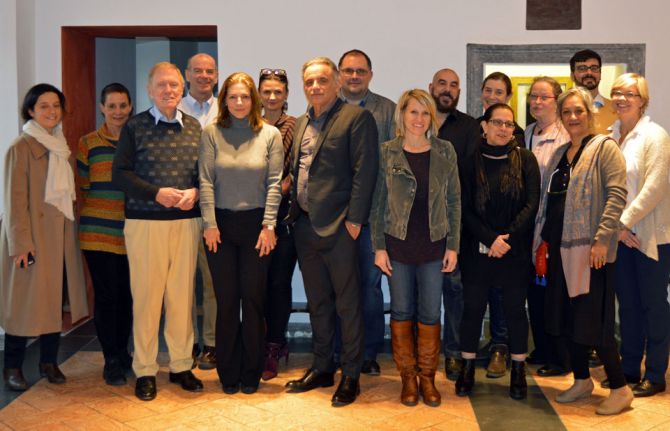
Update
Experts meet to discuss human rights and health
11 February 2017
11 February 2017 11 February 2017Leading experts have come together at the Rockefeller Foundation’s Bellagio Center in Bellagio, Italy, to discuss how criminal laws can affect individual freedoms. The participants looked for ways to collaborate to end laws that impact upon health and human rights, towards supporting the goal of ending the AIDS epidemic by 2030.
The ground-breaking meeting, organized by UNAIDS and the Office of the High Commissioner for Human Rights, was held from 8 to 10 February. The participants learned about strategies for challenging and addressing the impacts of unjust criminal laws on health and human rights and explored how to build alliances for increased collaboration and to challenge the misuse of criminal law. Entry points for greater leadership from United Nations agencies and other organizations were also identified.
Quotes
“This meeting was an important step forward in developing the innovative thinking required to address the unjust application of criminal laws. From a moral, health and rights perspective, we simply cannot afford to leave anyone behind in the AIDS response.”
“The meeting helped to clarify an important notion: when considering whether to use its power to regulate the conduct of the individual that impacts on the enjoyment of human rights and liberties, the state has to consider criminal law as a last resort.”
Related

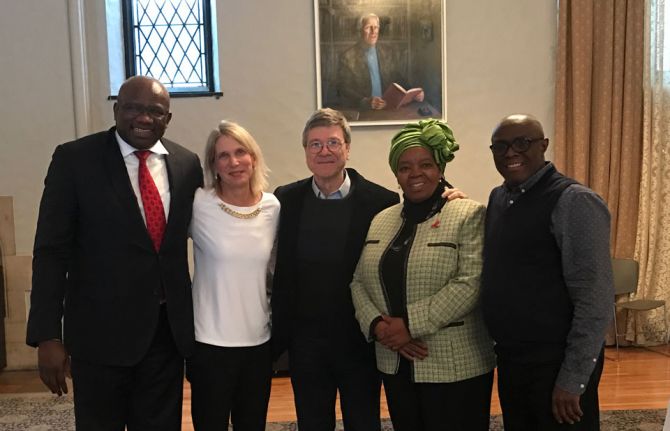
Update
Plan to increase community health workers endorsed
13 February 2017
13 February 2017 13 February 2017Economic experts and representatives of national AIDS programmes, health ministries and health professional organizations endorsed the creation of a global coalition of community health workers in UNAIDS-convened consultations in New York, United States of America, on 9 and 10 February.
Community health workers bring cost-effective services to communities and increase service access for marginalized people, who often struggle to access essential health services. More than 6 million community health workers are already in place across the world. However, many are unpaid and are typically not fully integrated into health systems.
The participants called for an urgent initiative to recruit, train and deploy at least 2 million community health workers over the next two years to drive progress towards the 90–90–90 targets—whereby 90% of people living with HIV know their HIV status, 90% of people who know their HIV-positive status are accessing treatment and 90% of people on treatment have suppressed viral loads—and to lay the foundation for sustainable health for all.
The consultations generated strong support for UNAIDS to establish a new international coalition of community health workers by mid-2017. This coalition will help to galvanize the creation of national associations of community health workers, support their harmonization and formalization, advocate for actions that support them and provide a unifying platform.
As a next step, it was agreed that UNAIDS will seek input from country-level community health workers on the vision, mission and structure of the coalition. UNAIDS will lead a global effort to mobilize resources for an emergency fund to support national initiatives for community health workers and to incorporate them as formalized, integral members of the health system.
Funding from Luxembourg supported the consultations. The Earth Institute of Columbia University and the International Association of Providers of AIDS Care were co-hosts.
Quotes
“Community health workers are a key element of getting practical about achieving 90–90–90. Right now, though, no one owns the community health worker agenda and no one is paying for it.”
“We will end AIDS if we meet the 90–90–90 targets, but there will be an epidemic rebound if we don’t. Real action at the community level will be key to reaching 90–90–90. By recruiting at least 2 million new community health workers, the AIDS response can generate dividends beyond the AIDS epidemic.”
“Community health workers can help us achieve the 90–90–90 targets. Moving forward, we need to improve the technical facility of community health workers on HIV, much as we successfully did earlier in Ethiopia with respect to childhood illnesses. Government commitment is key. If national commitment is in place, we can reach our goals for community health workers.”
“Community health-care workers are working in more than 95% of Brazil’s 5500 municipalities. In my view, all of the improvements we have seen in health over the last two decades are linked to the practice of community health workers. Community health workers understand the local culture. They go into people’s houses to educate them on health and to deliver health services.”
“When HIV exploded in our countries, it was the community that provided care and treatment. Too often, though, community health workers are sometimes treated like an app for a smartphone. Governments sometimes think they can turn community health workers on and off like an app, but community health workers need to be integrated as an ongoing part of the health system.”

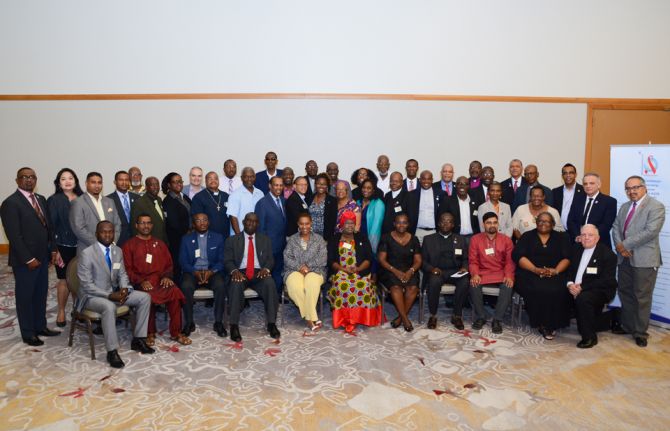
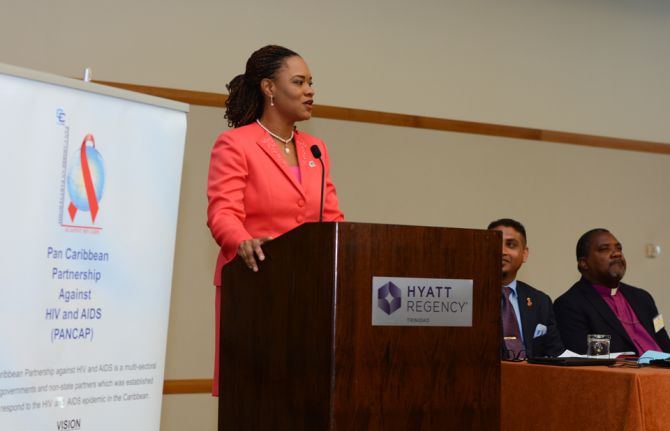
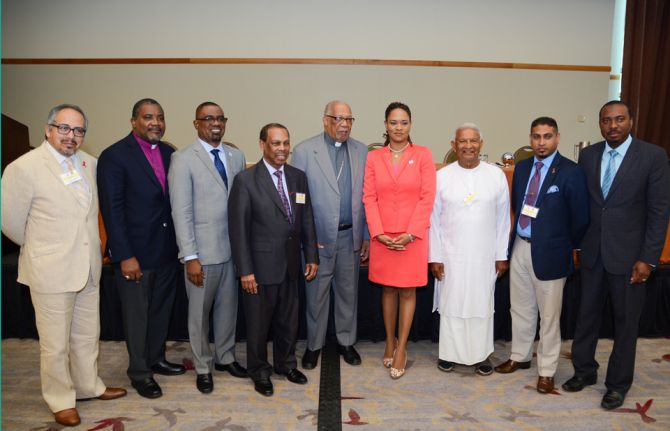
Update
Faith leaders mobilize to end AIDS in the Caribbean
09 February 2017
09 February 2017 09 February 2017Caribbean faith leaders met in Port of Spain, Trinidad and Tobago, on 1 and 2 February to determine how they can support the Sustainable Development Goal agenda to end AIDS. The 55 faith leaders from 14 Caribbean countries representing the Bahá'í, Christian, Hindu, Muslim and Voodoo faiths were joined by regional and international development partners, including UNAIDS Deputy Executive Director Luiz Loures.
The faith leaders agreed on a set of recommendations, including offering leadership in support of achieving the 90–90–90 targets—whereby 90% of people living with HIV know their HIV status, 90% of people who know their HIV-positive status are accessing treatment and 90% of people on treatment have suppressed viral loads—and addressing violence against women and girls. Other recommendations include engagement between representatives of religious organizations and key populations, including men who have sex with men, sex workers and people who use drugs.
While religious organizations have long contributed to the Caribbean AIDS response, the consultation aimed to increase knowledge and coordination, while rallying the region around the goal of ending the AIDS epidemic. However, the meeting heard that challenges surrounding stigma, discrimination, prevention and access to services remain.
The consultation, which was organized by a regional Faith Leader Planning Committee with support from the Pan Caribbean Partnership against HIV and AIDS, culminated with an endorsement of the United Nations Political Declaration on Ending AIDS and a road map to deepen their partnerships and capacity.
Quotes
“As faith leaders, you have a powerful impact on the way communities think and act. Your work to address stigma and discrimination in the wider community is critical. As you have affirmed during this consultation, HIV is a virus, not a moral judgement.”
“Through the Political Declaration on Ending AIDS, the world has a road map for delivering on the Sustainable Development Goals commitment to end AIDS by 2030. We have the tools required to end the epidemic but only a small window of opportunity to act. Now more than ever we need the faith community on board.”
“As members of faith communities, notwithstanding our differences, we have a common position that allows us to engage in discussions about faith, justice, love and peace, mindful that we are one family under God.”
“Faith organizations are a vital part of civil society. They often reach out to vulnerable populations and they engage in peer education, community outreach, provide referrals for HIV testing and offer psychosocial support. When one of my relatives was diagnosed with HIV, it was our faith-based community in Tobago that helped us offer him support and gave him the motivation to live his life.”
“No Caribbean person should have AIDS.”
Region/country
Related

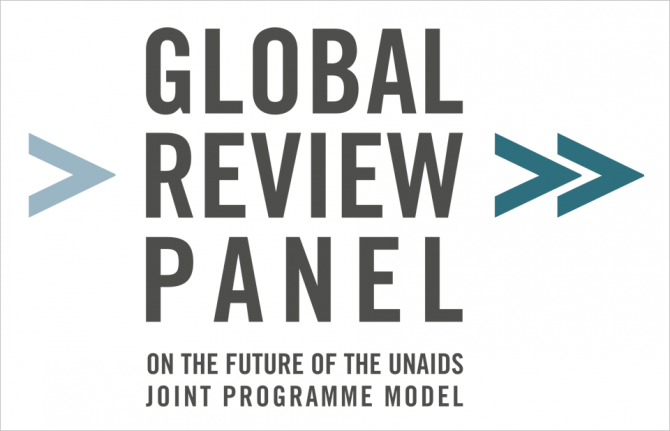
Update
Global Review Panel launches virtual consultation on how to strengthen UNAIDS
01 February 2017
01 February 2017 01 February 2017The Global Review Panel on the Future of the UNAIDS Joint Programme Model has launched a virtual consultation that will run until 15 February. The panel is seeking input on how the Joint Programme can be refined and reinforced to better support countries to end AIDS.
The online consultation is open to everyone to share their views.
The Global Review Panel is tasked with making recommendations for a sustainable and fit-for-purpose UNAIDS. The virtual consultation aims to give voice to a wide range of stakeholders and to encourage meaningful engagement on a number of questions on how the Joint Programme works. It will serve as a primary input for the panel’s report and recommendations.
The discussion forums of the virtual consultation are organized around the three fundamental pillars of the Joint Programme: joint working, governance, and financing and accountability. There is also one forum for general discussion about the added value of UNAIDS.
Quotes
“I am looking forward to hearing the voice of young people and people living with HIV, especially those in high-burden countries, as they are key to the future of the AIDS response. I want to encourage them, and other populations most vulnerable to and affected by HIV, to share their ideas on how UNAIDS can be strengthened to best support them.”
“Our virtual consultation provides an opportunity for UNAIDS’ stakeholders to engage in imagining how the UNAIDS Joint Programme model can be refined and reinforced to better support the global AIDS response. We are interested in the perspectives of those UNAIDS serves and works with on a daily basis—including people living with and affected by HIV, civil society, the private sector and national authorities, as well as bilateral partners, global initiatives and the United Nations family itself.”
Resources
Related

Update
International conference in Thailand addresses health of vulnerable populations
03 February 2017
03 February 2017 03 February 2017The Prince Mahidol Award Conference brought together international leaders in public health to discuss high-priority health issues in Bangkok, Thailand. The 10th annual gathering was held under the theme “Addressing the health of vulnerable populations for an inclusive society” and took place from 29 January to 3 February.
Her Royal Highness Princess Maha Chakri Sirindhorn attended the opening session, which included a keynote address from Nobel Laureate Amartya Sen, of Harvard University, who spoke about how living in a sharply unequal society affects health.
UNAIDS and the Global Fund to Fight AIDS, Tuberculosis and Malaria organized a session called From Exclusion to Leadership: Learning from the AIDS Response. The session explored how knowledge from the response to HIV could be used in addressing vulnerability, marginalization and social exclusion at the global, regional and national levels. It looked at lessons and approaches that are transferable to the broader health agenda.
Another session co-organized by UNAIDS and the World Health Organization was entitled Discrimination in Health Care—Determinants and Consequences. It examined how discrimination leads to poor health outcomes, leaving people who are stigmatized even more vulnerable to ill-health and its consequences.
Quotes
“To neglect the health of some while others enjoy health care is a sure way to perpetuate social injustice.”
“We can’t end this epidemic unless we become better human beings. We have to look outward, forward and with hope, instead of inward with hate.”
“We have three strategies to ending AIDS: prevention, prevention and prevention. We must turn off the tap.”
“It’s not just about pills; it’s about policies, laws, criminalization, women, girls and adolescents.”
“Now, we must legalize the community-led health service model, led by key populations. We must accredit the community health workers.”
“Vulnerable people are not asking for more rights; they are just asking for the same rights that all of us enjoy.”

